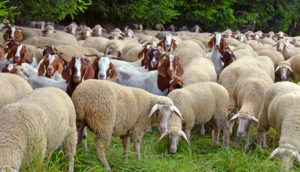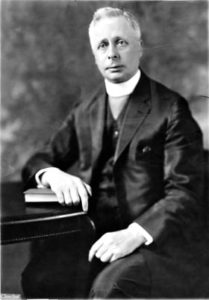Dear Parishioners,
Alongside this weekend’s Newsletter and Readings for Holy Mass, comes a wish and hope that these greetings find you and your loved ones well and contented.
This weekend we begin a new year in the life of the Church as we move into the Season of Advent. Personally speaking it is one of my favourite periods highlighted on the liturgical calendar, and I would happily skip Christmas, the bit of Ordinary Time which occurs briefly as we box and store our decorations, and dismiss Lent in order to be able to celebrate Easter as soon as possible after Advent ! Aware of some of the headlines over recent days, offering hope of a more ‘normal’ way of life by Easter, I suspect that my imagined leap through time would suit many others too. However, we are where we are, and that is much nearer seeing the release of a vaccine against the dreaded Covid-19 than we were even a month ago. So let us continue to journey with necessary caution and common sense but also carrying with us the Advent gifts of hope and joy.
One of the necessary jobs carried out this week was the preparation of our churches for Advent. In both churches this meant putting away our “There but not there” soldier figures, and at St. Paul’s taking down the banners which have decorated church in Ordinary Time. Across two of these are the words Let Your Light Shine. Reflecting on those words may well have inspired numerous parishioners and others to do just that: allowing their own talents, gifts and personalities to bring light into the lives of others. During recent months there have been many instances of this taking place, often very quietly, and without the trumpet blast of public praise or accolade. Perhaps two simple words – thank you – gave reassurance that where there had been darkness, your gesture, word or presence had truly brought light.
Before anyone jumps to the conclusion that all I do is watch TV, can I just correct any straying thoughts in that direction, by saying my working day begins before 7.00 a.m. as I sit down over breakfast to read through, and respond to e-mails, so by 8.00 p.m. there is some justification in being able to sit down once more, this time to relax, and eat a meal often taken in front of the TV ! And I am very choosey about what I watch. Far from being any sort of domestic god, I confess that I have very limited capabilities in the kitchen. If I am told that something needs twenty-five minutes in the oven, it usually gets at least ten minutes more due to my own doubting nature and the fact that the oven is old ! However not being able to cook has never stopped me from being hospitable. At least when times allow me to be so. As a student I long ago learnt that a few Rich Tea biscuits and a bag of Twiglets could be turned into a veritable feast !
Over recent weeks as I have partaken of my Tuesday evening meal I’ve delighted in the skills and culinary imagination of the contestants in “The Great British Bake Off” tent. This years’ potpourri of bakers seemed from the outset a near perfect combination of truly lovely human beings. Their efforts come under the scrutiny of the Marmite-figure of Paul Hollywood, and everyone’s surrogate aunt, Pru Leith. Tuesday saw the three remaining contestants Laura, Dave and Peter thrash it out in order to claim the Bake Off trophy – an inscribed cake stand. Having seen all the contestants and their creations struggle with the heat within the tent, which included on more than one occasion the wearing of ice-towels (the temperature was in excess of 36 degrees some weeks), they all deserved some form of medal for stamina alone. However out of the final had to walk a winner. This honour went to Peter Sawkins, a twenty year old Accounting and Finance student at Edinburgh University. Throughout the series he was a real star. There was nothing showy about him. But he had it all ! Week after week he not only gave of his best but produced personal triumphs and twice was accredited the coveted award of Star Baker. A self-confessed fan of “Bake Off” it had clearly inspired him as a child to dabble in the family kitchen, and constantly he referred to the fact that he was living the dream by being a contestant on the show. Even Paul Hollywood acknowledged that Peter had a mature head on his young shoulders. This was evident in a comment made by Peter in the final episode, when he reflected that in comparison to his peers his life may not have been as exciting – devoid of a gap year or overseas experiences – but he enjoyed and felt privileged for the life he had. Amazing wisdom. He also had the quirky and successful technique of listening to his cakes before removing them from the oven. It was a trick, uniquely his, picked up from observing a contestant in an earlier series of the show.
Peter Sawkins’ light shone into homes across the country for many weeks. His unflappability and stoicism when things did not go as planned, openness to the critical friendship of the judges, and an incredibly youthful face and sparkling smile that spoke of contentment and satisfaction on life’s journey. Despite the programme being aired quite some time after filming had finished the name of the winner remained a tight secret. When revealed, Peter was in his student flat along with his housemates, watching the show as they had done since returning to university. Sharing one of his cakes (lucky them !) they celebrated together when the judge’s verdict was announced just after 9.00 p.m. Perhaps not all that quietly as he apologized, during a radio interview, to others living in the same block of student accommodation who had heard the cheers and applause that had sounded as the announcement was made. Asked what was next for him by the BBC Radio 2 host, Peter simply said that he had an assignment to be completed by Friday, and exams in two weeks’ time. There is something reassuring to know that life goes on as normal even for a Bake Off winner ! Congratulations to him, and especial thanks to those who have, during his formation as a son and brother, cultured his light allowing it to shine in the triumphs and disasters produced in their family kitchen. A light that has shone brightly amid a nation of armchair bakers, revealing little less than perfection in all that he created from the ingredients presented to him week on week, but also in the pure loveliness of humanity that he conveyed by being himself.
Taking encouraging banners down does not mean that we should cease illuminating the lives of others. In fact Advent calls us to be a people of light, ultimately being drawn towards the True Light which is the gift of the Christ-child presented to us in the fragility of humanity in the darkness of Christmas night. It is from this encounter that we draw the strength to be light-bearers to and for others. In the wonderful days of Advent that lie ahead may we have the confidence to share our own light, but also recognize the illumination carried by others and encourage it to shine brightly too.
Holding you in prayerful remembrance and affection.
As ever, Fr. Nicholas
P.S. Having seen this prayer recently, I thought it was worthy of sharing !
Prayer for putting on a face mask:
Creator, as I prepare to go into the world, help me to see the sacrament in the wearing of this cloth – let it be “an outward sign of an inward grace” – a tangible and visible way of living love for my neighbours, as I love myself. Christ, since my lips will be covered, uncover my heart, that people would see my smile in the crinkles around my eyes. Since my voice may be muffled, help me to speak clearly, not only with my words, but with my actions. Holy Spirit, as the elastic touches my ears, remind me to listen carefully – and full of care – to all those I meet. May this simple piece of cloth be shield and banner, and each breath that it holds, be filled with your love. In your Name and in that love, I pray. May it be so. May it be so.
 The Gospel at the core of our Sacred Scripture readings for this weekend cautions me, and others, of observing the rather cute, fun-seeking, goats with the green eyes of envy. The separation of the sheep from the goats is perhaps one of the best known Parables depicting end times. At its heart are the choices we make on the adventure of life’s pilgrimage. As a man of his time and place, Jesus would have been very familiar with sheep and goats, possibly even having to shoo a curious, free-spirited, straying goat from the open working environment of St. Joseph on more than one occasion. Sheep follow, can be rounded up, and are contented when enclosed in a space of their own. On the other hand a straying goat has to be caught, carried, harnessed or tethered, and if contained spends its waking hours seeking any means of escape. Described elsewhere as the Good Shepherd, Jesus offers through his own example and skillful leadership a blueprint for His sheep to follow. Within that some skills of the goat will be needed, such as the confidence to reach out, being prepared to take risks, but not those of journeying through life in isolation, leading to a blindness that fails to see the needs of others, not least those most in need. This is summarised in the question asked by those on the left of the throne of glory: “Lord, when did we see you hungry or thirsty, a stranger or naked, sick or in prison, and did not come to your help ?”
The Gospel at the core of our Sacred Scripture readings for this weekend cautions me, and others, of observing the rather cute, fun-seeking, goats with the green eyes of envy. The separation of the sheep from the goats is perhaps one of the best known Parables depicting end times. At its heart are the choices we make on the adventure of life’s pilgrimage. As a man of his time and place, Jesus would have been very familiar with sheep and goats, possibly even having to shoo a curious, free-spirited, straying goat from the open working environment of St. Joseph on more than one occasion. Sheep follow, can be rounded up, and are contented when enclosed in a space of their own. On the other hand a straying goat has to be caught, carried, harnessed or tethered, and if contained spends its waking hours seeking any means of escape. Described elsewhere as the Good Shepherd, Jesus offers through his own example and skillful leadership a blueprint for His sheep to follow. Within that some skills of the goat will be needed, such as the confidence to reach out, being prepared to take risks, but not those of journeying through life in isolation, leading to a blindness that fails to see the needs of others, not least those most in need. This is summarised in the question asked by those on the left of the throne of glory: “Lord, when did we see you hungry or thirsty, a stranger or naked, sick or in prison, and did not come to your help ?”